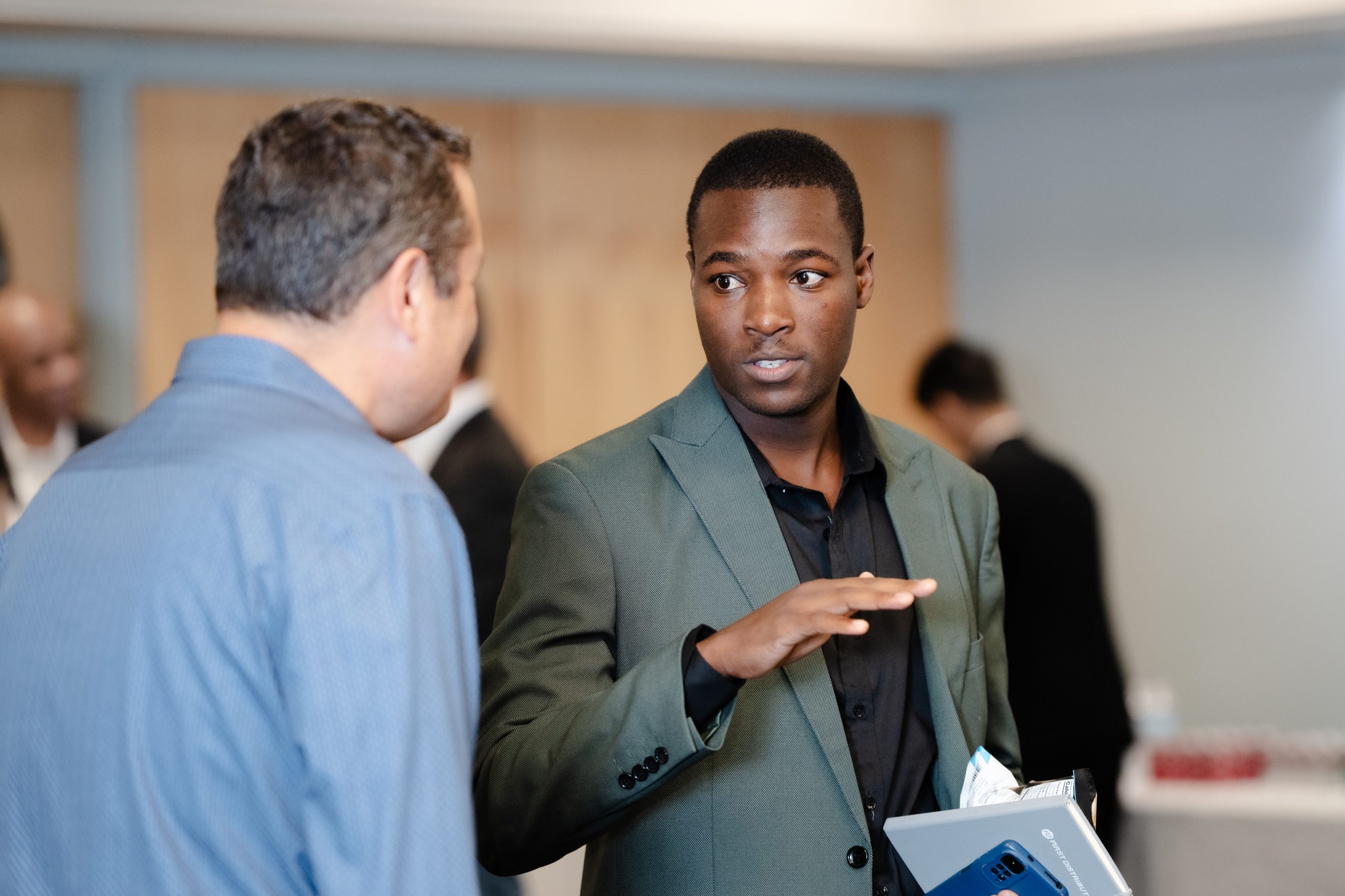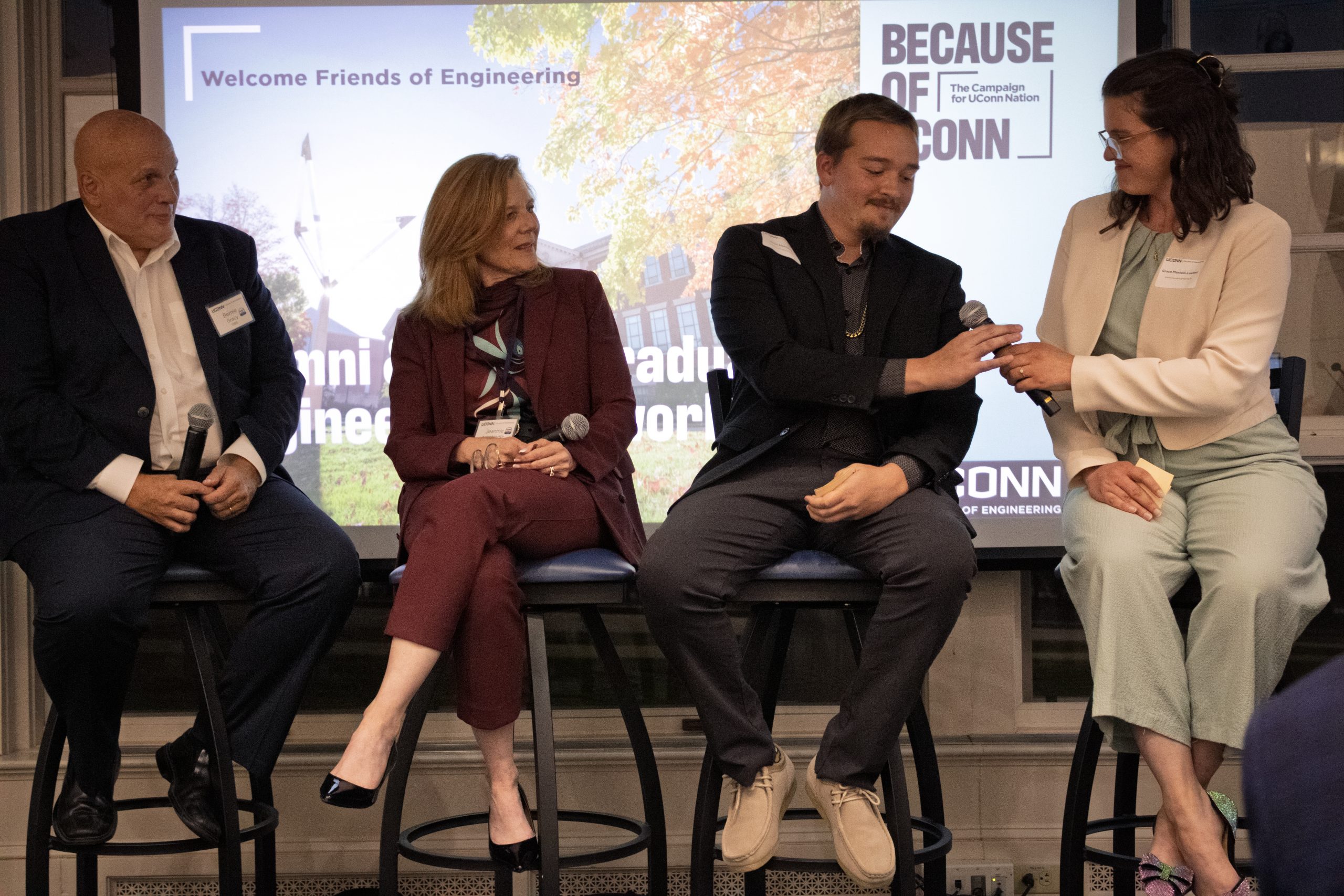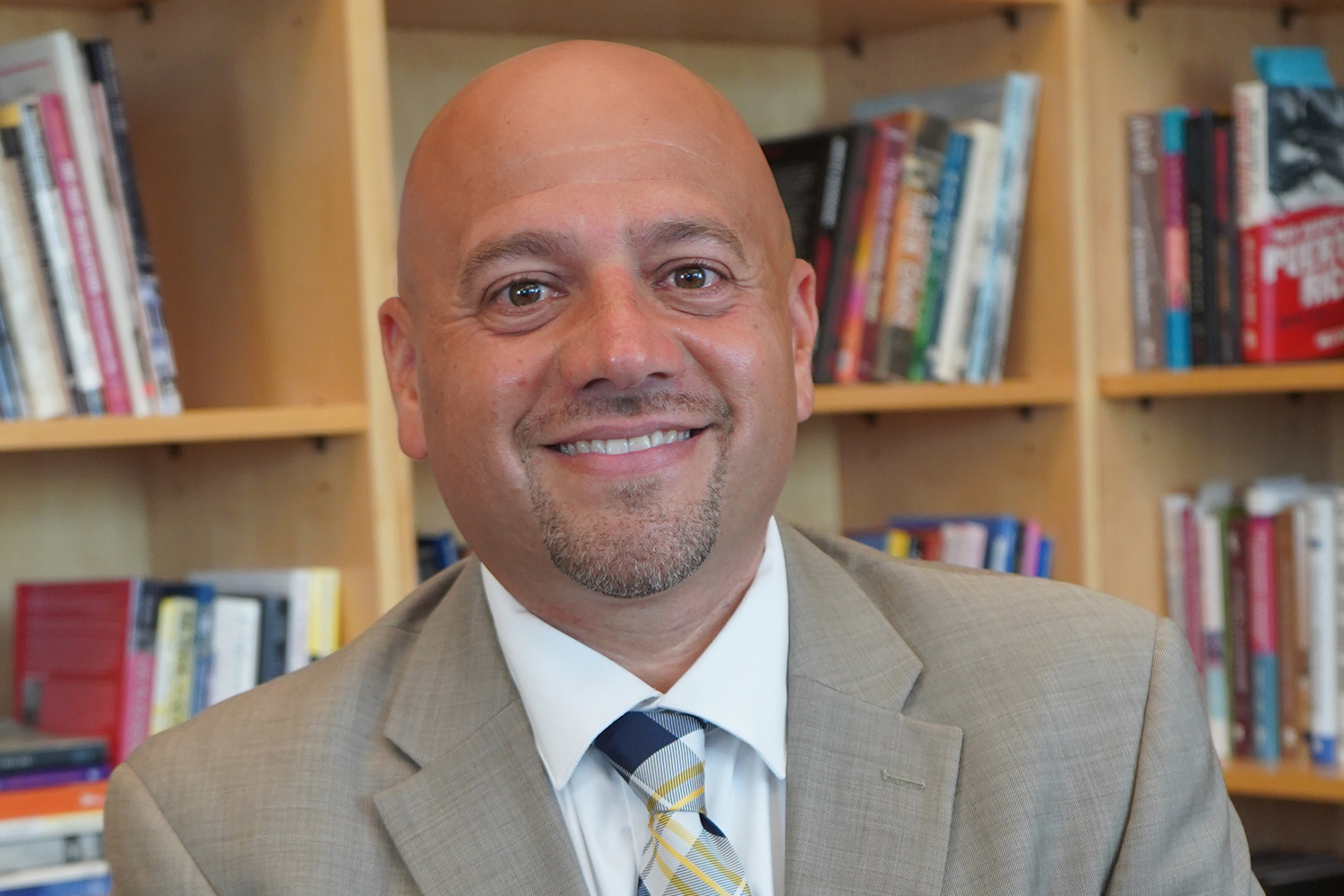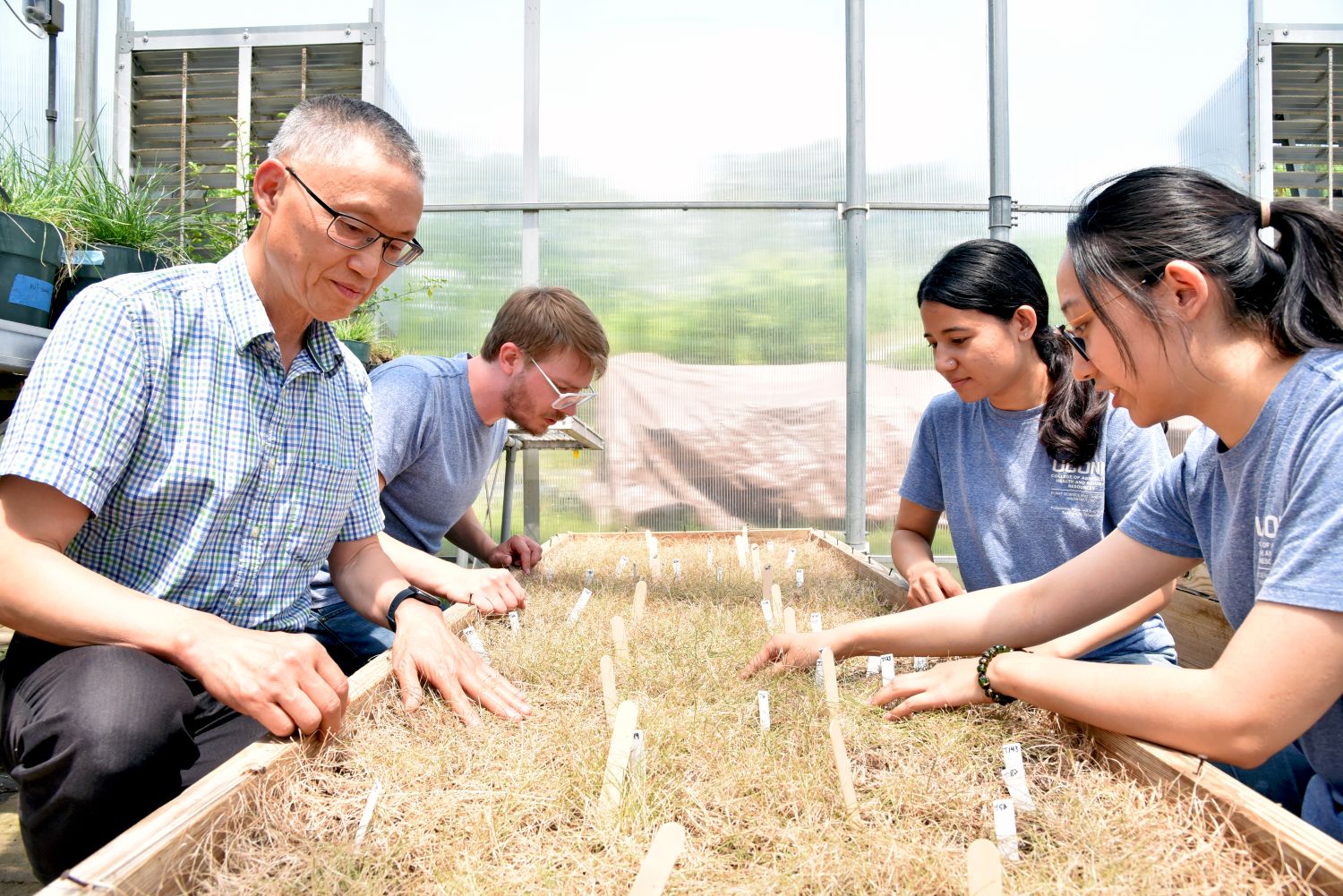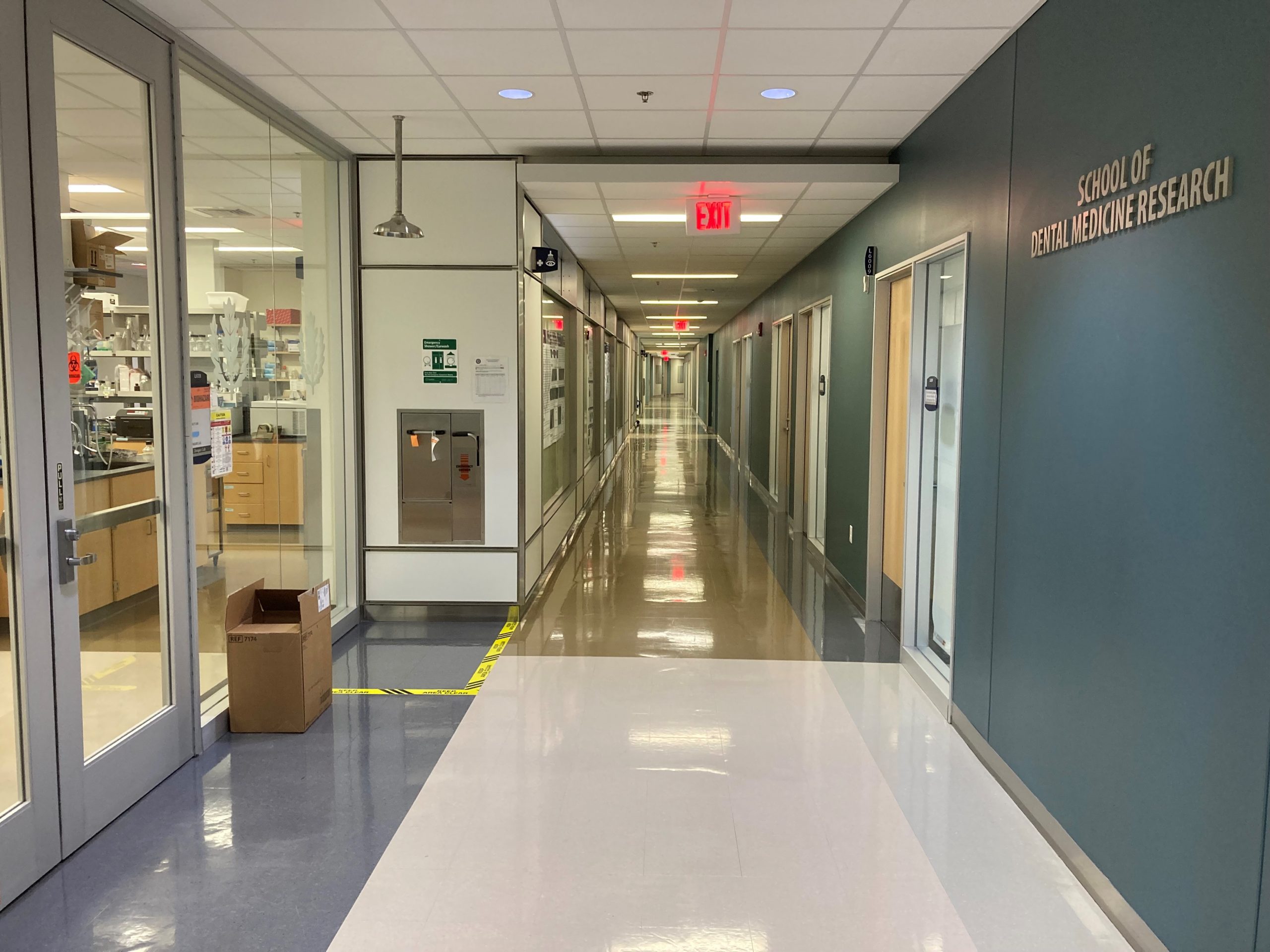Campaign to End Loneliness on Campus Draws from Humanities’ Lessons on Human Connection
Not long after Anna Mae Duane published an opinion piece early this year about the loneliness epidemic, she got a letter from a UConn student who agreed with her that befriending chat bots, instead of actual humans, was dangerous territory.
But the letter also included a startling admission: The student had given up on making friends. It had become just too hard.
“I followed up with them and they told me they were struggling with big, impersonal classes,” says Duane, director of the UConn Humanities Institute and an English professor. “So many of our classes are in lecture halls, where students sometimes answer the professor with a clicker and that’s the extent of their social interaction.”
The prospect of a 19-year-old giving up on companionship – even non-romantic relationships – broke Duane’s heart. She moved into action and vowed to advance the essence of what she wrote in that opinion piece: The humanities are key to training people to navigate meaningful human connection.
“Sure, there are things we can do to encourage communal spaces and communal events, but we have students in classrooms right now and we already have a means of teaching social skills,” she says. “The arts and humanities help us understand and give us a vocabulary for talking about human motives and emotions.”
Through the Humanities Institute, Duane has begun a year-long focus on loneliness and social isolation, beginning with “Let’s Talk about the Loneliness Epidemic,” a workshop in early October with the CT Collaborative to End Loneliness that included a panel discussion with UConn students and alums about their experiences with social isolation and loneliness.
Efforts continued in early November with “Pick Up the Thread: A Post-Election Connection,” in conjunction with UConn’s Well-Being Collective, to work on a group fiber arts project to decompress in the wake of a tumultuous political campaign season.
Other events are planned for the spring, and with each Duane says she reflects on the question of how art, literature, and philosophy help people relate to one another. What makes the humanities so special?
“The humanities, music, and art, we’re always trying to show our utility and our value,” she says. “Over the past 20 years, we’ve devalued the humanities across the board from K to 12 and through college, and now we’re in a loneliness epidemic. I’m not saying it’s causal, but we stopped teaching students how to think and talk to each other with empathy and respect. At the same time, screen culture has taken students away from looking each other in the eye.”
It’s a problem, she says, to which everyone has contributed.
Careers are demanding. Work commutes are long. People move away from family. Children’s activity calendars are full. Social media encourages mindless scrolling. Someone else will join the civic club, someone else will head the town committee, someone else will volunteer.
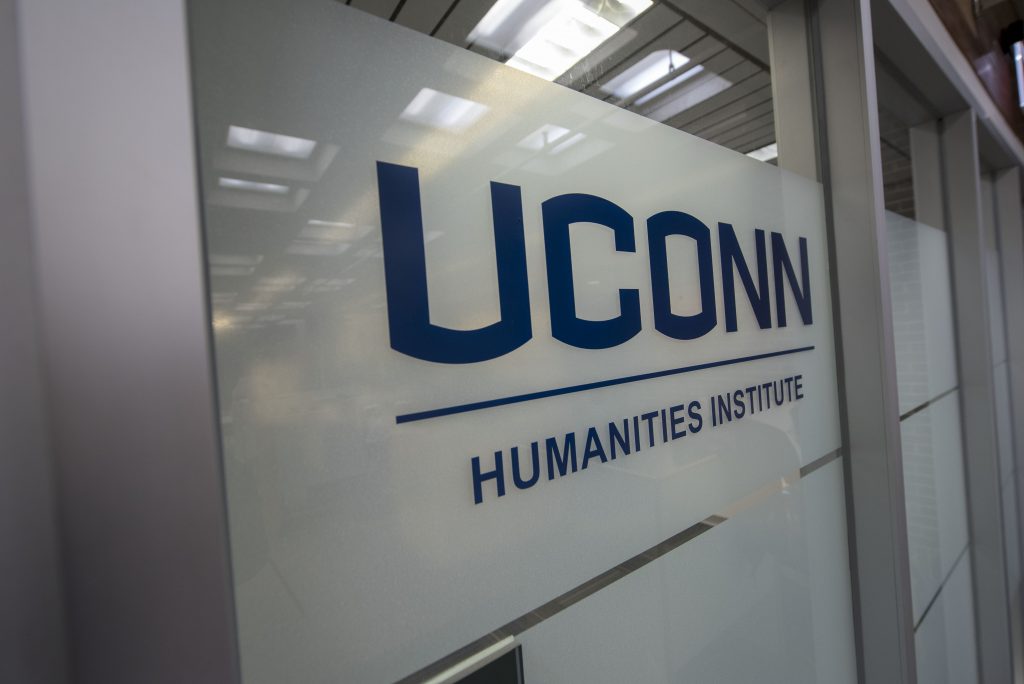
There once was a time, Duane notes, when adults gave themselves permission to use their spare time to cultivate friendships – to go bowling for no other reason than to spend time with others, for instance. But today’s culture emphasizes utilitarian connections that allow people to get ahead or improve their current state.
She hears this echo even when talking to UConn students.
Students are in competition with each other, so there’s no room for anything but utilitarian connection, they tell her. There’s no time for investing in deep relationships – if one doesn’t have a 5.0 GPA and isn’t spending hours in the lab, they feel as if they are not sufficiently ambitious.
And joining a club, especially one unrelated to one’s major, often is dismissed as a waste of precious time, rather than a vital part of the college experience, she adds.
“If you do choose to have friends, they have to be transactional, many students say, and that’s just deadly. What’s more, they’re hearing that pursuing the humanities, studying history, or reading poetry are going to make you poor and unmarketable. No, it won’t. It’ll make you better at whatever career you’re going to choose,” Duane says.
Next spring, the Humanities Institute is hosting a program through Olin College of Engineering during which two professors – one from psychology, the other from English but both with theater backgrounds – will work with a handful of UConn students to develop self-narratives.
These are the stories one tells oneself to make sense of intense situations, like a serious illness or personal tragedy, Duane explains. The role a person plays in their story translates to how they see themselves in the world.
With coaching from the Olin professors, students will be asked to consider whether this is the best self-image and whether there are other ways to characterize themselves, she says. Simply changing the narrative may help someone improve their mental wellbeing.
Duane says the program will culminate with a story slam-type event, putting the students in front of a crowd to share their narratives while other students from a UConn film class go behind the scenes to capture the process. The hope is to tell stories that not just remark on the difficulties of loneliness but also offer solutions for fostering connection.
She further is exploring ways to partner with UConn researchers to assess how students were feeling before and after such events and determine what works and what doesn’t, so scientific data can bolster the argument for making these kinds of programs annual events and make the case for curriculum changes.
Social media makes us lonelier, even as it’s allowed us to connect with people. Studies show the more you scroll, the lonelier you tend to be. — Anna Mae Duane, director of the UConn Humanities Institute
Duane even hopes to launch a class about friendship itself.
“Everyone knows we should have friends, like we know we should eat our vegetables and sleep eight hours, but we’re not doing it,” she says. “Why not? What are the obstacles? What are other options? What are the ways people have found their way to this? Asking these questions, both inside the classroom and on campus, is a necessary first step in finding solutions.”
In 2023, U.S. Surgeon General Vivek H. Murthy issued an advisory on the loneliness epidemic to serve as a wake-up call for young and old around the country. But Duane speculates that with the number of deaths of despair increasing, people probably should have been talking about this 10 years ago.
Similarly, attitudes around cellphone use are changing and people are beginning to realize the importance of putting down digital devices, even if only to focus on tasks like learning in a classroom.
But what does one do when they put down the phone?
“We’ve been implicitly teaching kids this is how you interact with the world. This is what friendship looks like. We’ve never taught them what to do when you put it down,” Duane says. “Social media makes us lonelier, even as it’s allowed us to connect with people. Studies show the more you scroll, the lonelier you tend to be.”
Nonetheless, some organizations at UConn have managed to gain quite a following, she notes, including organizations like the Horticulture and Gaming clubs that have long membership rosters.
She aims for the Humanities Institute to partner with these groups and others to draw out even more students – because for many, starting a conversation cold and making friends with strangers seems impossible, even paralyzing.
“The administration has been very supportive of the Humanities Institute and very supportive of this initiative,” Duane says. “We have students who are feeling lonely, who feel they don’t have the skills they need to make connections. I keep hearing their stories. Some find their place, but many of our students are struggling, and we can’t ignore that anymore.
“Of course, we know that the humanities are not the only answer, but we do know they are good at creating connection,” she continues. “Study after study has demonstrated that humanities classes make people better doctors, better engineers, and more connected to their community. For instance, we know that reading literature improves empathy, so let’s make the investment.”
Latest UConn Today
- Risk Management Experts Highlight the Need for Young Talent During Two-Day Business EventThe event included panel discussions, classroom visits, and an opportunity for students to network with some top leadership in the field. Many of the speakers highlighted the risk industry’s need for young talent.
- Getting Connected: Engineers Learn From Alumni ExperienceAt the event, undergraduate students asked professional alumni for their advice on entering the workforce after graduation
- Organizational Realignment within Academic Affairs and Student Life & EnrollmentThe realignment goes into effect on Dec. 1, 2025
- Jason G. Irizarry Reappointed to Second Term as Dean of UConn’s Neag School of EducationInterim Provost Alpay praises Irizarry’s vision and leadership in guiding the School’s expanded community engagement and student success
- New Method Makes Transgene-Free Gene Editing Even More Promising'Our new but simple method is far more effective and can now be applied to a much wider range of plant species than our original approach'
- Dr. Madison Doolittle Receives American Federation for Aging Research GrantFunding will support Doolittle’s tissue aging research








